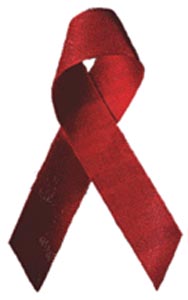When encouraging patients to receive the flu vaccine every fall, I always find it amazing that so many people have misconceptions about the flu and the flu shot. If I were to ask a group of patients what the flu is, I would get many different answers, including descriptions of symptoms of a viral gastrointestinal syndrome (nausea, vomiting, diarrhea), a sinus infection, the common cold, or of true influenza (flu) infection.
Influenza (referred to as flu in this article) is a serious and extremely contagious
viral respiratory illness. Complications of the flu can lead to hospitalization and death. According to the
Centers for Disease Control (CDC): Every year in the United States, 5% - 20% of the population gets the flu, approximately 200,000 people are hospitalized from flu complications, and approximately 36,000 people die from the flu.
The symptoms of the flu include fever (usually >102F), headache, extreme fatigue, sore throat, dry cough, runny or stuffy nose, and muscle aches. Nausea, vomiting, and diarrhea are
uncommon with the flu. Although some flu symptoms resemble those of the common cold, flu symptoms have a much more abrupt onset and are more severe than those of a cold. Possible complications of the flu include bacterial or viral pneumonia, sinus infections, ear infections, dehydration, and worsening of other medical conditions such as diabetes, asthma, or chronic lung disease. These complications can prolong the illness and may lead to hospitalization.
The flu virus spreads from person to person through coughing or sneezing. You may get infected by touching something (such as a doorknob or telephone) that has flu virus on it and then touching your mouth or nose. The best way to prevent the flu is to get a flu vaccination each year between October and December. The flu shot can be offered to all healthy people who want to decrease their risk of getting the flu. Certain people are at high risk for flu complications and should be strongly encouraged to receive the vaccine. These groups are: children (6 months-5 years old), pregnant women, people over age 50, people with chronic medical conditions such as diabetes, asthma, emphysema, HIV infection, AIDS, heart disease), and people living in long term care facilities such as nursing homes and prisons. In addition, all healthcare workers and household contacts of people in the high risk groups, as well as household contacts of infants less than 6 months of age, should be vaccinated to prevent the spread of the virus to those people.
Let's clear up another very common misconception:
The flu shot does not give you the flu, and does not make you sick! I can't even count the number of times that patients have told me that they received the shot and got the flu. The vaccine consists of killed influenza virus (killed virus is not capable of causing illness), which causes the body to respond by developing antibodies to protect against the flu. It is this response that causes common side effects of the vaccine, such as a slight fever, chills, headache, and fatigue, for the first 24 hours after the vaccine is given. Remember, this is not the flu.
Some people should not be vaccinated; they include: people with a severe allergy to eggs, people who have had a severe reaction to the flu shot in the past, children less than 6 months of age, and people with a history of Guillain-Barre syndrome (a paralyzing neuromuscular disorder). If you have a moderate or severe illness with a fever, you should wait until those symptoms resolve before getting vaccinated.
If you are HIV positive, most healthcare providers will recommend that you receive the flu vaccine each year. Although there has been some debate and controversy over this issue, it is generally thought that vaccination offers significant benefits to the HIV positive person, including the prevention of serious complications of the flu such as bacterial pneumonia and activation of HIV replication (leading to an increase in HIV viral load and a decrease in the CD4 cell count). In addition, the flu may resemble symptoms of an HIV or AIDS related opportunistic infection; thus, avoiding the flu will avoid an unnecessary workup. The vaccine itself is well tolerated by most people, including those who are HIV infected. There may be a very slight and temporary rise in the HIV viral load, but this will quickly resolve after vaccination. Studies have shown that the body's ability to respond to any vaccine and to build up protective antibodies may be decreased when the CD4 cell count is below 2oo, but it is still recommended to vaccinate these people, as there may still be some protective benefit.
You may hear about the Nasal-Spray Flu Vaccine, and think that this would be a great alternative to getting another injection. Sorry, but if you are HIV positive you cannot receive this vaccine. The nasal spray vaccine is a live vaccine, which contains weakened live virus (instead of killed virus in the injection), and is capable of producing severe illness in anyone with a weakened immune system. If you are HIV positive, you should never receive any live vaccines for this reason.
In conclusion, the flu vaccine is the best protection against getting the flu. However, you may still get other viral respiratory illnesses or even a strain of the flu that was not included in the flu shot. Besides vaccination, the next best defense against viral illness is frequent and thorough hand-washing and the use of antibacterial hand gels which can easily be carried in your pocket, purse, or car. This will help to prevent you from transferring virus you come into contact with to your mouth and nose.











